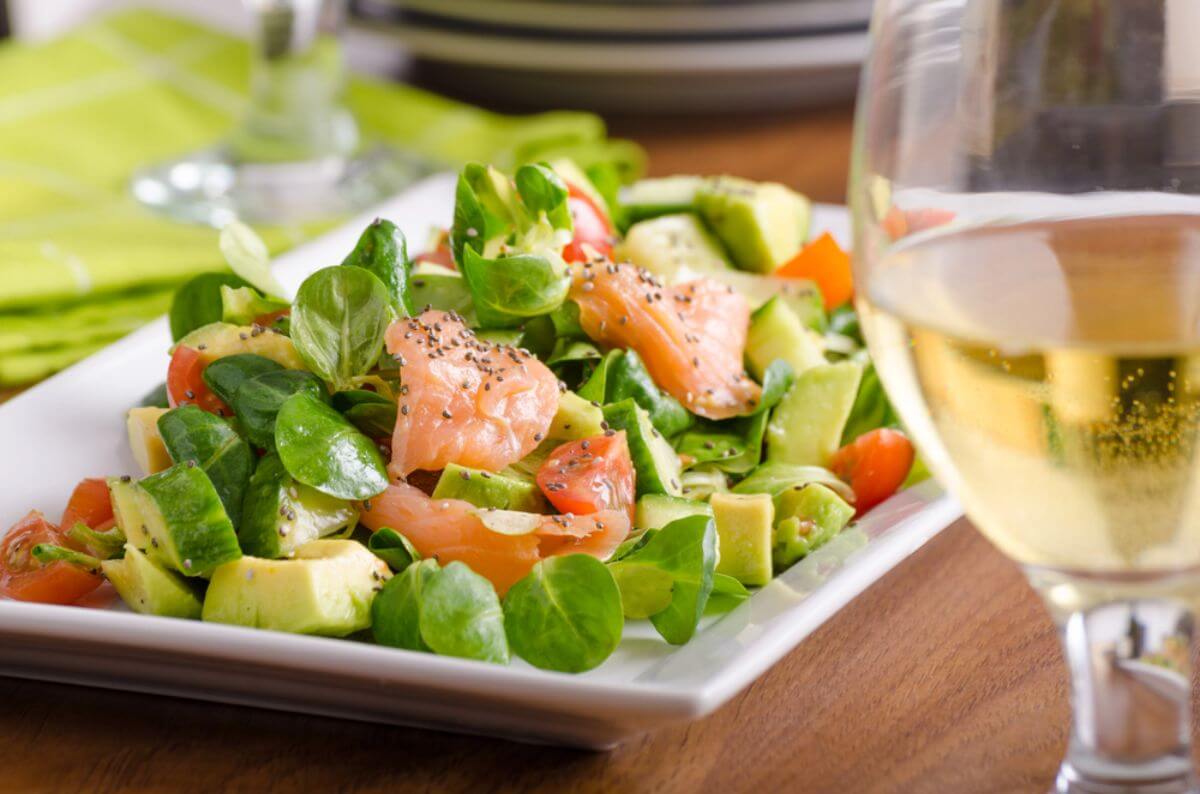
Pairing wine with food is an art, but when it comes to matching organic wines with vegan dishes, it’s a whole new level of creativity. Whether you’re hosting a dinner party or simply elevating your weeknight meals, the right pairing can transform your dining experience. With the rise of plant-based cuisine and sustainable winemaking, there’s never been a better time to explore this flavorful combination.
You don’t need to be a sommelier to get it right. By understanding a few key principles, like balancing flavors and complementing textures, you’ll unlock pairings that bring out the best in both your wine and your dish. From crisp whites to bold reds, organic wines offer a clean, vibrant taste that pairs beautifully with the natural flavors of vegan ingredients. Ready to make your meals unforgettable? Let’s dive into the essentials of pairing organic wine with vegan dishes.
Understanding Organic Wine
Organic wine reflects a commitment to sustainable farming and natural winemaking processes. By choosing organic, you support eco-friendly practices and enjoy wines free from synthetic additives.
What Makes Wine Organic?
Organic wine is produced using grapes grown without synthetic pesticides, herbicides, or fertilizers. These vineyards prioritize soil health and biodiversity, often employing compost, cover crops, and natural pest management. In winemaking, organic producers avoid synthetic preservatives like sulfur dioxide in some regulations. Certification, such as USDA Organic in the US or EU Organic in Europe, ensures compliance with recognized standards.
Benefits of Choosing Organic Wine
Organic wine supports environmental sustainability by reducing chemical runoff and promoting healthier ecosystems. Its production contributes to cleaner air and water, benefiting both you and the planet. Organic wines often showcase pure, terroir-driven flavors, free from artificial substances, making them exceptional for pairing with natural, plant-based dishes.
Basics Of Vegan Food Pairing
Pairing wine with vegan dishes requires focusing on flavors, textures, and the natural characteristics of both the food and wine. Understanding these elements helps create harmonious combinations.
Flavor Profiles in Vegan Dishes
Vegan dishes often feature a wide range of flavor profiles, from earthy and umami to fresh and tangy. Ingredients like mushrooms, legumes, and root vegetables contribute earthy and savory notes. Citrus, herbs, and vinegar provide brightness and acidity. Creamy textures in dishes made with nuts or plant-based dairy increase richness. Matching the dominant flavor of the dish to the wine’s characteristics enhances overall balance.
For example, an earthy mushroom risotto pairs well with a medium-bodied Pinot Noir. Dishes with tangy flavors, like lemon-dressed salads, complement crisp white wines such as Sauvignon Blanc. Rich foods, like cashew-based cream sauces, pair best with full-bodied whites like Chardonnay.
Common Challenges in Pairing Wine with Vegan Cuisine
Lack of animal fats in vegan dishes means wine tannins can become more pronounced, potentially overpowering the food. To address this, choose lighter red wines with softer tannins, such as Grenache or Gamay, when pairing with delicate plant-based dishes.
Plant-based proteins and herbal components can sometimes clash with overly acidic or oaky wines. Stick to wines with balanced acidity or minimal oak influence to ensure smoother pairings. Dishes using fermented or umami-rich ingredients like soy sauce or nutritional yeast might require bold wines like Malbec to prevent the food from overwhelming the wine.
Tips For Pairing Organic Wine With Vegan Dishes
Pairing organic wine with vegan dishes revolves around balancing flavors, acidity, and texture. A thoughtful approach ensures an enhanced dining experience that celebrates both.
Matching Intensity of Flavors
Matching the intensity of flavors in food and wine creates harmony. Bold dishes like grilled eggplant with smoky spices pair well with full-bodied red wines like Syrah or Malbec. Delicate meals, such as steamed asparagus or lightly seasoned tofu, complement light-bodied white wines like Pinot Grigio. Ensure neither the dish nor the wine overpowers the other.
Considering Acidity and Sweetness Balance
Balancing acidity and sweetness is essential for avoiding clashes. High-acid wines like Sauvignon Blanc enhance citrus-forward or tomato-based dishes, like vegan pasta with fresh marinara. For sweeter vegan dishes, such as caramelized onion tarts, semi-sweet wines like Riesling or Moscato provide balance. Always match the wine's acidity level to the brightness of the dish.
Aligning Wine Types with Plant-Based Proteins
Align wine types with the textures and flavors of plant-based proteins. Creamy proteins, like cashew-based sauces or chickpea curries, pair well with oak-aged Chardonnay or Viognier. Earthy proteins, such as lentils or mushrooms, complement medium reds like Merlot or Cabernet Franc. For lightly grilled tofu or tempeh, consider crisp rosé or dry whites to accentuate the dish's simplicity.
Recommendations For Specific Wine And Dish Pairings
Pairing organic wine with vegan dishes requires attentiveness to flavor intensity, preparation methods, and texture. Below are suggestions to inspire complementary and delicious combinations.
White Wines and Light Vegan Meals
White wines enhance light, fresh vegan meals like salads, grain bowls, and vegetable-based soups. A zesty Sauvignon Blanc pairs beautifully with citrus-dressed greens or a quinoa and arugula bowl due to its crisp acidity. For creamy elements, such as cashew-based Alfredo pasta, choose an oak-aged Chardonnay, which complements the dish's richness. Lightly spiced meals like coconut curry match well with an off-dry Riesling that balances mild heat with a touch of sweetness.
Red Wines and Hearty Vegan Dishes
Red wines add depth to robust, hearty vegan meals like lentil loaf, mushroom-based dishes, and roasted vegetables. A medium-bodied Pinot Noir pairs superbly with a wild mushroom risotto, enriching its earthy notes. For grilled or roasted dishes like eggplant steaks or smoky jackfruit barbecue, opt for a bold, full-bodied Syrah whose intensity matches these complex flavors. Bolder reds like Malbec highlight umami-heavy ingredients, including seitan or tempeh in savory sauces.
Sparkling Wines and Vegan Appetizers or Desserts
Sparkling wines complement both appetizers and desserts with their effervescence and versatility. A dry Prosecco pairs well with vegan bruschetta, balancing the acidity of ripe tomatoes and fresh basil. For desserts like almond or chocolate-based mousse, a demi-sec sparkling wine enhances the sweetness and creamy texture without overwhelming the palate. Champagne or Cava works harmoniously with lighter fare like vegan sushi appetizers or fresh fruit tarts, elevating the dining experience with vibrant bubbles.
At Organic Wines, we believe that thoughtful pairings start with thoughtfully made wines. Whether you're preparing a plant-based feast or a simple vegan dinner, our selection offers something to match every flavor profile and occasion. Explore our unique collections like Vegan Wines, Double Zero Wines, Low-Intervention Wines, and Low-Sulfite Wines—all crafted with purity, sustainability, and taste in mind.
Key Takeaways
-
Organic wines are crafted using sustainable processes, offering pure, additive-free flavors that pair exceptionally with natural vegan ingredients.
-
Understanding flavor profiles, such as earthy, tangy, or creamy, is essential for creating harmonious vegan food and wine pairings.
-
Balance is key: match the wine’s intensity, acidity, and sweetness to the dominant flavors and textures of the vegan dish.
-
Earthy vegan ingredients like mushrooms pair beautifully with medium-bodied reds, while light, citrus-based dishes complement crisp white wines.
-
Choose lighter reds with soft tannins for plant-based meals, and avoid overly oaky or acidic wines to maintain balance.
-
Sparkling wines are versatile, enhancing both vegan appetizers and desserts with their effervescence and ability to complement diverse flavors.
Conclusion
Pairing organic wine with vegan dishes is an exciting journey that allows you to explore flavors, textures, and sustainability all at once. By understanding the principles of balance and harmony, you can elevate your plant-based meals into memorable dining experiences.
Whether you're experimenting with zesty whites, bold reds, or versatile sparkling wines, there's always an organic option to suit your dish. Embrace the creativity, trust your palate, and enjoy the process of discovering combinations that delight your taste buds and align with your values.
At Organic Wines, we offer a curated selection of certified organic wines—bold reds, crisp whites, and elegant sparklers—crafted to complement your lifestyle and your plate.
Buy organic wine from our store now and bring home wines that make every plant-based meal even more memorable.
Frequently Asked Questions
What is organic wine?
Organic wine is made from grapes grown without synthetic pesticides, herbicides, or fertilizers. It follows sustainable farming practices and natural winemaking processes. Certified organic wines, like those labeled USDA Organic or EU Organic, ensure adherence to specific organic standards.
Why are organic wines a good match for vegan dishes?
Organic wines complement vegan dishes due to their natural, pure flavors that align well with plant-based ingredients. Both emphasize sustainability, making them ideal for eco-conscious dining and creating harmonious flavor combinations.
What are key principles for pairing vegan dishes and organic wine?
Focus on balancing flavors, acidity, and texture. For example, match bold dishes with full-bodied wines, delicate meals with light wines, and consider the dish’s flavor intensity and texture for a complementary experience.
What are some common vegan wine pairings?
Some examples include pairing earthy mushroom risotto with Pinot Noir, tangy lemon salads with Sauvignon Blanc, and creamy vegan dishes with oak-aged Chardonnay. Robust meals go well with medium or full-bodied reds like Syrah or Malbec.
How do I handle tannins in wine when pairing with vegan food?
Choose lighter reds like Grenache or Gamay if you’re pairing with delicate dishes. Avoid overly tannic wines, which may overpower plant-based ingredients. Balanced acidity and smoother reds enhance umami-rich vegan meals.
Are sparkling wines good with vegan dishes?
Yes, sparkling wines offer versatility. Dry Prosecco pairs well with appetizers like bruschetta, while demi-sec sparkling wine complements vegan desserts like chocolate mousse. Their acidity and bubbles balance many flavors.
How do plant-based proteins affect wine pairings?
Plant-based proteins can clash with overly acidic or oaky wines. Opt for wines with moderate tannins and balance, such as medium-bodied reds or creamy whites like oak-aged Chardonnay, to harmonize flavors and textures.
What are the benefits of organic wine for the environment?
Organic wine supports sustainable farming, promotes healthier ecosystems, and reduces chemical use. It aligns with environmentally friendly practices, making it a better choice for eco-conscious individuals.
Can I pair a bold vegan dish with a white wine?
Yes, but choose a full-bodied white like barrel-aged Chardonnay. Its richness and texture can stand up to bold dishes, offering a complementary pairing.
How do I balance acidity in wine and vegan food?
Pair high-acid wines, like Sauvignon Blanc, with citrusy dishes, while sweeter wines, like Riesling, balance sweeter vegan options. Matching acidity levels ensures a harmonious dining experience.
